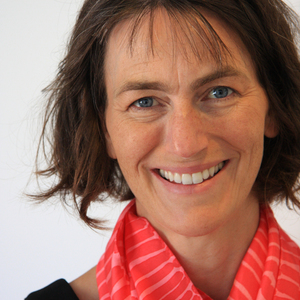 There are many life changing theories in Positive Psychology! The research and concepts that stand out for me include the following:
There are many life changing theories in Positive Psychology! The research and concepts that stand out for me include the following:
Seligman’s has a theory on how happiness plays out in peoples lives, he describes them as: The Pleasant life – Based on experiencing pleasure and feelings of positive Emotion, broken down into the past, (cultivating gratitude and forgiveness), the present (savouring moments and being mindful) and the future (being hopeful and optimistic.) The Good life – Largely focuses on pursuing happiness by utilising strengths and virtues in new and creative ways. There is a focus on being a good person, rather than simply having happy or positive experiences. Finally the Meaningful life – Individuals are conscious of contributing to something greater than themselves, their focus is on making the world a better place rather than having fun or experiencing pleasurable emotions. The Full Life therefore is lived only by an individual that has accomplished all three of the above, and is able to consequently live a life that is full with pleasure, engagement and meaning.

Barbara Fredrickson developed the Broaden and Build theory after pondering the question “what is the purpose of positive emotions?” Much research has been done into the purpose and evolution of negative emotions, and it’s thought that negative emotions are key to keeping us alive, safe and alert for danger.
Fredrickson found that when positive emotions are experienced, individuals ‘thought-action repertoires’ broadened, meaning they are able to think with a wider perspective and take a wider range of actions that previously were unavailable. When people think from a broader perspective and essentially take more positive action they learn and grow, this creates a building of lasting resources. In times of challenge or stress, they are then able to draw on these lasting resources and create more positive and successful outcomes.
The diagram below shows how emotions spiral both upwards in a positive manner and downwards in a negative manner. I believe the key is learning the tools to support and teach people to place themselves in an upward spiral.

Hedonic adaption is a term that refers to the way we quickly adapt to positive changes in our circumstances. If a family income increases from $70,000 to $90,000 they will quickly adapt their lifestyle and choices to fill the additional $20,000 and find that $90,000 is no longer enough to fulfil all their wants or desires.Interestingly, Friedrickson has also established the Positivity Ratio. She found that to create a flourishing individual, someone with ‘lasting happiness’ they need to have at least three times the positive emotions than negative emotions. (IE a positivity ratio of 3:1.) Lossada extrapolated this research into business teams finding a ratio of 6:1 (Six positive emotions to every one negative emotion) essential for teams to thrive and Gottman found that relationships with a 1:1 positivity ratio or less, generally ended in divorce. The Positivity ratio highlights the need for and acceptance of negative emotions, positive psychology is not about the elimination of negatives but rather the growth and mindfulness around the positives.
Hedonic adaption implies that regardless of the positive or negative events in our lives, within 3 months we will return to our happiness set point. (We each have a set point of happiness made up of 50% Genetics, 10% Circumstances and 40% Voluntary control governed by thoughts, choices and actions.) Experiments have been conducted with both Lotto winners & paraplegics and within 3 months both groups returned to their happiness set point. (However death of a loved one, divorce, long term unemployment and degenerative illnesses may have a 5- 7 year impact.)
Synthetic happiness is almost the opposite. It occurs when we make the most of what we get (regardless of what we want) particularly when we can’t change the situation. The American paradox explains that despite significant wealth increases over generations in America, happiness levels have remained the same with depression rates increasing significantly. Affluenza is a condition in which the individual focuses on money, status and material possessions. This generally leads to dissatisfaction and a feeling of worthlessness. Our Westernised societies are suffering terribly from moving away from meaningful goals and moving towards consumer driven happiness.
Mihaly Csikszentmihalyi developed the theory of Flow, a condition where time seems to stand still, the external world seems to cease to exist and your absolute concentration and focus are directed in one positive and engaging direction. It’s recently been found that for flow to occur you need to achieve a relatively high skill level and also be working at a relatively high challenge level. Csikszentmihalyi also speaks about being magnanimous, and bringing back the focus in education to having a large soul and supporting people to gain joy by helping the planet, developing social justice and building social consciousness.
 Sonia Lyubomirsky in her presentation to Google described that happy People:
Sonia Lyubomirsky in her presentation to Google described that happy People:
- Are more productive & creative
- Have better relationships
- Make better leaders and negotiators
- Are more likely to get married
- Make more money
- Are less likely to get divorced
- Have more social support
- Cope with stress better
- Have stronger immune function
- Are generally healthier
- Live longer
- Invest in relationships
- Express gratitude
- First to help others
- Practice optimism
- Savour pleasant experiences
- Live in the present moment
- Make physical activity a habit
- Often spiritual or religious
- Committed to goals
Lyubermirsky also described the following 5 Strategies to increase Happiness & Subjective wellbeing.
1) Acts of kindness
2) Counting blessings
3) Gratitude letters
4) Visualise best possible future
5) Savor/ replay happy moments
There is a lot of information here, take two key points that you can implement and share them with someone you know. The more people know about the path to happiness and success the better our world will be for generations to come! As always, if you have any thoughts, questions or comments feel free to contact me.




